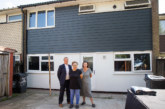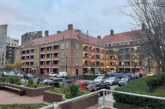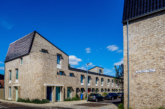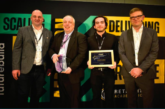
The way in which homes are insulated could be transformed following research by Leeds Beckett academics.
The Leeds Sustainability Institute (LSI) at Leeds Beckett were successful in an open tender competition for a £200,000 research project by the UK Government.
The Department for Business Energy and Industrial Strategy has commissioned the LSI to examine the effectiveness of new types of wall insulation for buildings. The project, which is being led by Dr David Glew, Reader in the Leeds Sustainability Institute, will inform future domestic energy efficiency policy in the UK.
Dr Glew explained: “Hopefully, the result of this project will help those most affected by fuel poverty.
“Current methods of insulating Solid Walls can be expensive and complicated to install, so few homes actually have this insulation.
“Thin Internal Wall Insulation provides a slightly lower energy saving than conventionally used Solid Wall Insulation, but may be simpler and cheaper meaning more homes could be insulated and have a greater benefit to society overall.
“Our research will evaluate the performance of Thin Internal Wall Insulation against thicker insulation projects through various building performance evaluation tests in homes in Leeds this winter.”
The insulation will also be tested in a hygrothermal laboratory, a specialist facility where accurate measurements can be taken on any changes to how moisture flows through walls when the products are installed.
Dr Glew added: “This project builds on the LSI’s reputation for undertaking excellent building performance fieldwork research.
“This project is especially rewarding as it should lead to a direct impact on domestic energy efficiency policy and potentially the health and wellbeing of millions of people in the UK.”
The project is due to be completed in October 2018 and will allow the LSI to further develop their building performance testing protocols, including the co heating test which was first developed by Leeds Beckett researchers over 20 years ago, and which are now being used by other researcher institutions across Europe.








